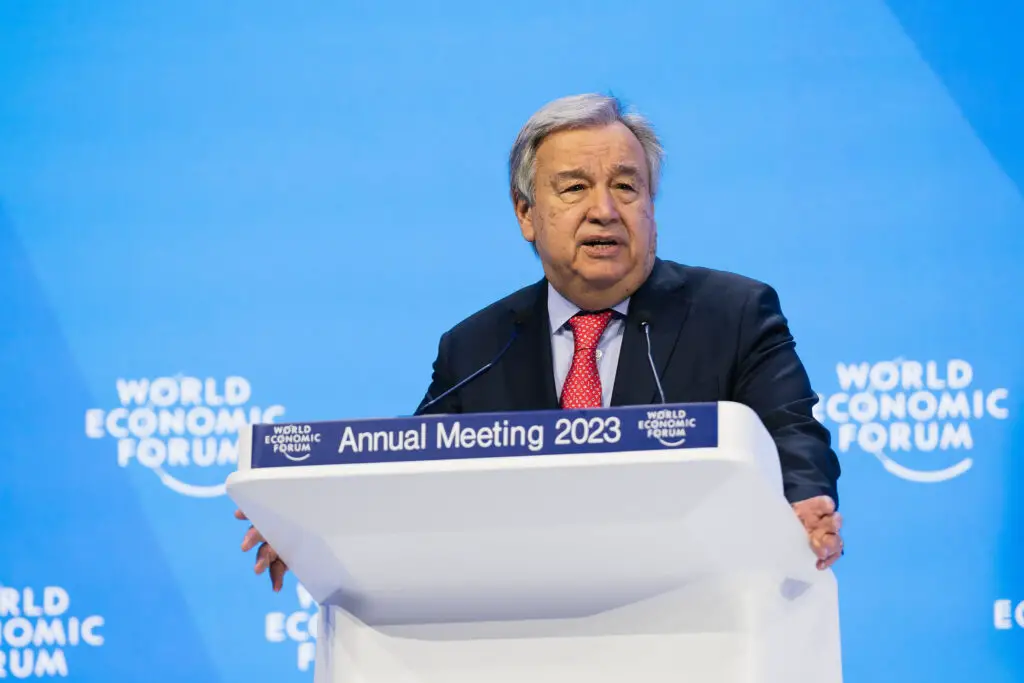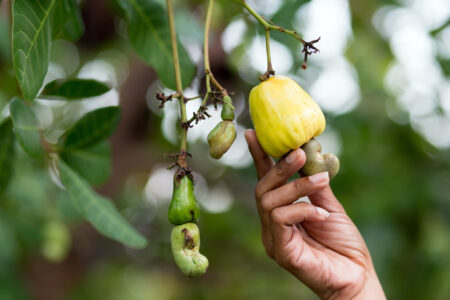Into a menacing economic quick sand African economies have been sinking, taking hefty blows from numerous unprecedented challenges birthed by the overarching global crisis. The status quo has instigated a clarion call to cushion them from dipping further beneath the horizon, by casting different viable iron rods, as the ‘one shoe fits all’ approach is not feasible due the dynamic nature of African economies. Inarguably, Africa has not been left unscathed amid the ongoing global ‘polycrisis’, as described in the 2023 World Economic Forum’s (WEF) Global Risks Report, to mean a cluster of related global risks with compounding effects, such that the overall impact exceeds the sum of each part.
In light of this, on day three of the WEF in Davos, Switzerland, UN Secretary General António Guterres in his speech, stated that at present the world faces “a category five” storm of challenges that need urgent action. These include the risk of recession and economic slowdown, rising inequality, the cost of living, especially for women and girls and the disruption in global supply chains. Furthermore, he highlighted rising inflation, interest rates and debt levels that are straining the economies of poorer countries especially in Africa. Moreover, the challenges have been compounded by accelerating climate change and the lack of preparedness for a future pandemic, even as the deleterious effects of the last one, Covid-19, still linger. Into the bargain, he noted that the Russia-Ukraine conflict aggravated the turmoil, increasing the uncertainty around food and energy security, trade and nuclear safety.
By the same token, the dollar doom loop has been accelerating inflation woes by weakening African currencies and thereby driving up dollar denominated prices of imports. The dollar, being the predominant medium of international exchange, serving as the world’s principal reserve currency, and being the de facto primary currency in some 16 countries, the American dollar wields sizable influence on the global economy. As it climbs higher in value, it amplifies inflationary pressures making it a herculean task for central banks to curb the high inflation. In similar vein, most African countries are still reeling from the detrimental effects of the pandemic marked by the high inflation rates, with some experiencing aftershocks after the Russian-Ukraine conflict dashed recovery efforts.
To add fuel to the fire, Africa has also found itself facing an energy trilemma, trying to strike a balance between reliability, affordability, and sustainability. According to the World Energy Council’s Energy Trilemma Index, nine of the bottom 10 and 19 of the lowest 25 ranked nations lie in the Sub-Sahara. Moreover, heavy indebtness has been another hurdle that African economies have had to contend with. Currently, many countries are on the verge of debt distress necessitating some to apply for the International Monetary Fund (IMF) bailout programmes, in order to restore macroeconomic stability as in the case of Ghana, Egypt and Kenya. Over and above, the IMF has identified 22 African countries as either in debt distress or at a high risk of it.
Besides, according to the Bretton Woods Institution, African countries are set to experience temporary spikes in debt service costs, also known as “debt walls” by 2024.In light of this, the Debt Service Suspension Initiative (DSSI) and the Common Framework, were implemented in 2020 by G20 countries which make for the bulk of African creditors, to temporarily pause debt payments and aid in debt restructuring respectively. Debt service costs on debts under the DSSI framework scheduled for 2024 to 2026, have been forecast to surge together with the coming to maturity of numerous international bonds. Furthermore, the continued appreciation of the US dollar coupled with an influx of interest rates, will cause a spike in debt service costs thereby increasing the number of Sub- Saharan African (SSA) countries crossing debt service risk thresholds.
ALSO READ:Africa set to become a new El Dorado for Rare Earths Production
How Can African economies be insulated from the global crisis?
- Harnessing the Economic Potential of Key Resources
Africa has stumbled upon the era of a new scramble for its vast untapped resources. These minerals have especially gained prominence since the onset of the Russian-Ukraine war in February 2022, as Western countries embarked on a quest to find contingency energy supplies, in order to wean themselves off Russian gas. In similar vein, in the race to net zero emissions by 2050 and the dire need to make the green energy shift, Africa’s green energy resources have also come under the world’s radar.
This has been a golden opportunity for the continent to generate innumerable revenues, vital in cushioning African economies from the ongoing global crises. To boot, these can help offset the heavy indebtness by most countries and spur massive economic growth.
- Dash for Gas
The newly found ‘dash for Africa’s gas, instigated by the Russian-Ukraine conflict presents a myriad economic prospects for Africa. Africa’s oil and natural gas-producing countries such as Mozambique, Nigeria, Libya, Egypt, Cameroon, DRC, Angola, Namibia, Algeria, Ghana, Gabon, Mozambique, Equatorial Guinea among others; have had an invaluable window of opportunity, to contribute largely to the global energy landscape.
The signing of an MoU between Afreximbank and the African Petroleum Producers Organization (APPO),for the creation of an African Energy Transition Bank, to finance oil and gas projects on the continent, to support and increase financing and investment opportunities for Africa’s oil and gas industry stands testament to the economic value to reaped from the ‘dash for gas’. As a strategy to wean of reliance on Russian energy, the EU developed the ‘REPowerEU Plan’ targeted at saving, producing clean energy and diversifying energy supplies putting Africa in high consideration.
The crisis also caused a surge in the global demand for thermal coal. African countries with coal resources, have doubled profit margins, with the surge in demand from European buyers. Italy, France, Portugal and Spain have been sourcing from Nigeria, whilst Germany has sought Senegal for gas supplies. The African coal market is projected to enjoy double its revenue for the next one year. The prevailing energy gap has created a window of opportunity for African coal producing nations. According to a report by Reuters, South Africa’s coal exports rose by 11 folds in the months following the war. Botswana has also projected growth in its coal market.
- Green energy transition minerals
The devastating effects of climate change have renewed the urgency for the world to make the green energy transition, cutting back on extractive industries. Africa boasts vast reserves of rare earth metals which are at the core of the green energy transition. Rare earth elements (REEs) refers group of 17 metals that are pertinent to both human and national security. These are used in renewable energy technology and national defense such as in jet engines, satellites, GPS equipment, missile guidance, generators for wind turbines, military-grade weaponry, defense systems and other high-level advanced technologies. They are used in the manufacture of electronics such as computers; smart phones; digital cameras; televisions; fluorescent and light-emitting-diode (LED).
The Natural Resource Governance Institute (NRGI) Triple Win report, indicates that overall Africa has at least a fifth of the world’s reserves in a myriad minerals that are vital for the world’s just energy transition. These ‘transition metals’ will play a pivotal role in the decarbonization race which is driving the growing demand.
Hence, this opens windows of opportunities for massive economic growth, injecting much-needed revenues to cushion economies against the global crisis. Africa’s rare earths market has massive potential as the continent is endowed with the largest mineral reserves in the world, which remain largely untapped. DRC has 50% of the world’s cobalt, South Africa has 91% of the world’s platinum, 46% of yttrium, 22% of manganese, 35% of its chromium and 16% of vanadium; Morocco has 70% of the world’s phosphate reserves; Gabon has up to 15% of the world’s manganese; Zimbabwe has vast reserves of lithium together with Nigeria and Namibia.
READ NEXT: Africa becoming a global fertilizer production hub
-
Fortifying Food Security to mitigate the global crisis
Fortifying Africa’s food security could largely shield the continent from the global crisis. To boot, given that the continent boasts 60 percent arable land, massive potential remains untapped yet its full exploitation thereof, could be Africa’s key to unlock food security. According to the 2022 Global Report of Food Crises Mid-Year Update report, at least one in five Africans goes to bed hungry, and an estimated 140 million people in Africa face acute food insecurity. The production of fertilizers and GMOs could help boost food security.
- Production of Fertilizers
The primary factor that has largely contributed to chronic food insecurity in Africa, is the surge in fertilizer prices instigated by the disruption in supply chains, due to the Russian-Ukraine war. The two warring countries are major global suppliers of fertilizers. With most African economies being agriculture-based, they largely import large quantities from the two currently warring countries
Fertilizer production in the continent is quickly gaining momentum, especially in the wake of the Russian-Ukraine conflict. Fertilizer producing countries such as. Morocco, Nigeria, Tunisia, Algeria and DRC; have been rising up to the challenge to seal the deficit in both the continental and global market.
With perspective to the 2019 McKinsey and Company report on ‘Winning in Africa’s agriculture’, about 23 percent of Sub-Saharan Africa’s GDP comes from agriculture. More than 60 percent of the population are small-scale holder farmers. Hence, there is an increased demand for fertilizers to boost productivity and increase yields.
- Adoption of GMOs
Another solution that Africa can explore to curb food insecurity is the adoption of Genetically Modified Organisms (GMOs). Some of the advantages that African farmers can reap from GM crop farming include: reduced production costs, increased yields and higher income. Some African countries such as Kenya, Nigeria, South Africa, Ethiopia, Eswatini and Sudan; are producing GM crops such as drought-tolerant maize, herbicide-tolerant rice, insect-resistant cowpea among many others. Every country exercises sovereign control over its GMOs, managing their own GMO seed production and distribution, primarily using local seed companies.
-
Leveraging of AfCFTA
With the declaration of 2023 as the year of the implementation and acceleration of the African Continental Free Trade Area (AfCFTA); revenues accrued from this intra-African trade initiative will massively boost African economies, thereby insulating them from the global crisis. According to the World Bank, AfCFTA promises broader and deeper economic integration and would attract investment, boost trade, provide better jobs, reduce poverty, and increase shared prosperity in Africa. Africa could see FDI increase by between 111 percent and 159 percent under the AfCFTA. If fully implemented, the Agreement could raise incomes by 9 percent by 2035 and lift 50 million people out of extreme poverty.
READ: Africa should set its own terms for green energy
-
Investing in Manufacturing to attain self-sufficiency
Africa’s heavy dependency on importing manufactured goods has made the continent vulnerable to global economic crisis. For instance, the current inflationary pressures caused by the Russia-Ukraine conflict, have been primarily caused by Africa’s over-reliance on imports for staple foods.
-
Tapping the potential of Special Economic Zones (SEZ)
SEZ can help shield African countries from the global economic crisis as they promote self-sufficiency. They are known to create attractive investment conditions and enhance foreign direct investment. In many African countries, FDI inflows are centralized to SEZs.
-
Powering up on Renewables
Climate-induced natural disasters have retrogressed many African economies, causing wanton destruction to infrastructure and the overall economy; exposing Africa’s vulnerability to the climate change crisis yet it contributes a paltry 4% of GHGs. Powering up the continent on renewables cushions economies, and presents Africa a chance to leapfrog fossil-fueled based energy supplies. According to the International Energy Agency (IEA), renewables which comprise of solar, wind, geothermal energy and hydropower; can make up four-fifth of the continent’s power generation capacity by the end of the decade. Unlocking sustainable, economic and social development through renewables is the key to Africa’s future.
ALSO READ: Technology trends that will revolutionize Africa in 2023
-
Technology
Inarguably, technology is central to Africa’s future. Therefore, adoption of key technologies to drive the numerous economic sectors, could greatly aid in the insulation of African economies from the global crisis; as technology not only bolsters efficiency but also productivity among a host of other economic benefits.
-
Geopolitical Partnerships and Alliances
African economies can further be shielded from the global crisis by forging strategic partnerships and alliances, amid the multipolar world order, as opposed to aligning with a singular power. This would enable the continent to benefit from the best of these contesting powers.











